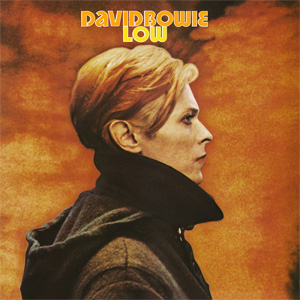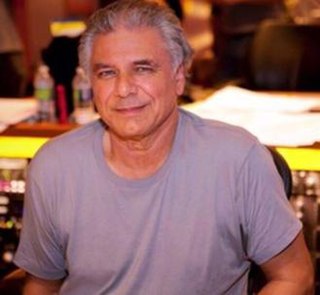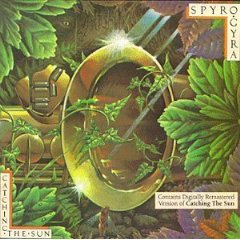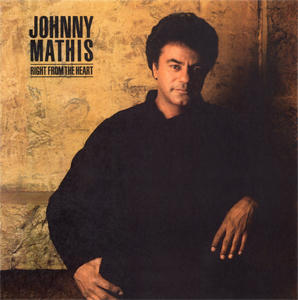Related Research Articles

ARP Instruments, Inc. was a Lexington, Massachusetts manufacturer of electronic musical instruments, founded by Alan Robert Pearlman in 1969. It created a popular and commercially successful range of synthesizers throughout the 1970s before declaring bankruptcy in 1981. The company earned a reputation for producing excellent sounding, innovative instruments and was granted several patents for the technology it developed.

Low is the 11th studio album by the English musician David Bowie, released on 14 January 1977 through RCA Records. After years of drug addiction when living in Los Angeles, Bowie moved to France in 1976 with his friend Iggy Pop to sober up. There, Bowie produced and co-wrote Pop's debut studio album, The Idiot, featuring sounds Bowie would explore on his next record. After completing The Idiot, Bowie began recording the first of three collaborations that became known as the Berlin Trilogy with American producer Tony Visconti and English musician Brian Eno. Sessions began at Hérouville's Château d'Hérouville in September 1976 and ended in October at Hansa Studios in West Berlin, where Bowie and Pop had relocated.

Paul John Buckmaster was a Grammy Award-winning British cellist, arranger, conductor and composer, with a career spanning five decades.
"Warszawa" is a mostly instrumental song by David Bowie and Brian Eno originally released in 1977 on the album Low. The band Joy Division was initially called Warsaw as a reference to this song.

No Secrets is the third studio album by American singer-songwriter Carly Simon, released by Elektra Records, on November 28, 1972.

L.A. Is My Lady is the 57th and final solo studio album by Frank Sinatra, released in 1984 and produced by Quincy Jones. While the album was Sinatra's last, he recorded five further songs, only four of which have been officially released.

Two Sides of the Moon is the only solo album by English rock musician Keith Moon, drummer for the Who. It peaked at No. 155 on the Billboard 200. The album title was credited to Ringo Starr. Rather than using the album as a chance to showcase his drumming skill, Moon sang lead vocals on all tracks, and played drums only on three of the tracks, although he played percussion on "Don't Worry Baby". The album features contributions from Ringo Starr, Harry Nilsson, Joe Walsh of the Eagles, Jim Keltner, Bobby Keys, Klaus Voormann, John Sebastian, Flo & Eddie, Spencer Davis, Dick Dale, Suzi Quatro's sister Patti Quatro, Patti's bandmates from Fanny Jean Millington and Nickey Barclay, and future actor Miguel Ferrer.
"What in the World" is a song by David Bowie released on his 1977 album Low, later making appearances as repertoire in the 1978 world tour as well as other major tours.
"Always Crashing in the Same Car" is a song by David Bowie from his album Low from 1977.
"Art Decade" is an instrumental by English singer-songwriter David Bowie, released on his 1977 album Low.

Made in America is the tenth studio album by the American popular music duo Carpenters, released in June 1981. The final album by the duo to be released during Karen Carpenter's lifetime, it reached number 52 in the US and number 12 in the UK.

For Girls Who Grow Plump in the Night is the fifth studio album released by the Canterbury scene band Caravan. Richard Sinclair and Steve Miller left the band prior to the recording of this album. They were replaced by John G. Perry and the returning Dave Sinclair. Viola player Geoff Richardson was added to the band.

Man-Child is the fifteenth studio album by jazz pianist Herbie Hancock. The record was released on August 22, 1975 by Columbia Records. It was the final studio album to feature The Headhunters, and a number of guest musicians including saxophonist Wayne Shorter, a full brass section, three different guitarists, and Stevie Wonder on harmonica.

The Dream Weaver is a solo album by Gary Wright released in July 1975.

Catching the Sun is the third album by the American jazz group Spyro Gyra, released in 1980 on MCA Records. The album was given gold status by the RIAA on June 5, 1985.

Diamond Head is the first studio album by English rock musician Phil Manzanera. It was released in 1975, originally on Island Records in the UK and in the US on Atco Records. The sound quality on the US album was deemed to be worse than the UK album, so the UK import became a popular seller in the speciality record shops who sold Roxy Music and other UK bands. The diesel locomotive featured on the cover art is an EMD E9.

Hello Tomorrow is the ninth studio album by saxophone player Dave Koz. It was his first album released by Concord Records on October 19, 2010. Koz himself provided vocals on "This Guy's in Love with You". The album peaked at number 1 on Billboard Jazz Albums chart. on November 30, 2011, the album received a Nomination in 54th Grammy Awards for Best Pop Instrumental Album.

Keeping Our Love Warm is the sixth studio album by the American duo Captain & Tennille. Issued in 1980, it was their final full-length release recorded for Casablanca Records.

Right from the Heart is an album by the American pop singer Johnny Mathis that was released on March 18, 1985, by Columbia Records. It was his first album without songs that were previously recorded by other artists. The title track is one of the album's four ballads that, along with four of the remaining six up-tempo tracks, delve into the subject of relationships, but it is the synth-driven "Step by Step" and the anthemic "Hold On" on which Mathis take a break from the usual focus on love songs. The former offers the hope that can be found in change that comes gradually until "I can see the way free from yesterday to a new beginning". The latter stresses the importance of being oneself: "Life is a party. Why don't you come the way you are?"
Master of the Game is the fourteenth studio album by American keyboardist and record producer George Duke. It was released in 1979 through Epic Records. Recording sessions for this full-length album took place at Westlake Recording Studios in Los Angeles. The album features contributions from vocalists Lynn Davis, Josie James and Napoleon Murphy Brock, guitarists David Myles, Ray Obiedo and Roland Bautista, bassists Byron Miller and Freddie Washington, drummer Ricky Lawson, percussionist Sheila Escovedo, trombonist Bill Reichenbach, trumpeters Jerry Hey and Gary Grant, and saxophonist Gary Herbig.
References
- 1 2 3 4 5 6 7 8 Thomas Jerome Seabrook (2008). Bowie in Berlin: A New Career in a New Town: pp.131–132
- ↑ Chris O'Leary (2019). Ashes to Ashes: The Songs of David Bowie 1976–2016: p.49
- 1 2 3 Mojo (magazine). 60 Years of Bowie.
- ↑ Griffin, R. "Low." Bowie Golden Years (Jan). 2005 Archived 19 January 2009 at the Wayback Machine retrieved 12 June 2007
- ↑ Nicolai, Carsten. "[N-057] ALVA NOTO FEAT. MARTIN L. GORE & WILLIAN BASINSKI - SUBTERRANEANS EP". Twitter. Retrieved 16 December 2022.